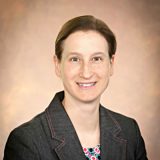Presenters

Nina Spada
Nina Spada (University of Toronto, Ontario Institute for Studies in Education, Canada)
Dr. Nina Spada is Professor Emerita at the University of Toronto in the Language and Literacies Education program. She joined the faculty of the University of Toronto in 2000 after 15 years at McGill University in Montreal, Canada.
Dr. Spada is a leading international expert on the role of instruction in second language acquisition (SLA). Her large-scale research on the contributions of form-focused instruction in classroom SLA has received national and international funding for over 30 years and has had a significant impact on the conceptualization and design of research investigating the teaching and learning of second/foreign languages in classroom settings.
Included in Dr. Spada’s publications are over 100 articles in journals and collected editions and 5 books/edited volumes. Particularly noteworthy is the recognition Dr. Spada has received as a co-author of the book How Languages are Learned published by Oxford University Press and used as a standard text on second language learning internationally.
Dr. Spada is regularly invited as a keynote speaker at conferences throughout the world. She has also made significant contributions to international projects related to the teaching and learning of second and foreign languages including those sponsored by the World Bank and the European Commission on the Teaching and Learning of Second/Foreign languages. She has given workshops and presentations to a broad range of audiences in Canada, US, Europe, South America, Australia, Asia and the Middle East. In 2015 she was a Visiting Professor in the Department of Foreign Language Education at Boğaziçi University in Istanbul, Turkey.
Dr. Spada is co-editor of the Language Learning and Language Teaching book series with John Benjamins and the Key Concepts for the Language Classroom series published by Oxford University Press. She is Past President of the American Association for Applied Linguistics.
Abstract: Reflecting on TBLT from an Instructed SLA Perspective (PDF).

Paula Winke
Paula Winke (Michigan State University, USA)
Paula Winke’s primary research is on foreign and second language testing. She investigates the content and construct validity of high-stakes, standardized tests that English language learners and foreign language students take. She researches language-test reliability and methods for creating (and managing) placement and proficiency tests. Paula also researches language teaching methods, with a particular focus on task-based language assessment and task-based materials design. With Aline Godfroid and Susan Gass, Paula co-directs the Second Language Acquisition Program’s Eye-tracking Labs. She is on the editorial boards of Language Testing, Language Assessment Quarterly, and the Modern Language Journal. From 1998 to 2000, she was a Peace Corps Volunteer in China. In 2008, she was a Fulbright Scholar in Hungary. In 2008, she received the CALICO Article of the Year Award with Senta Goertler, and in 2012 she received the TESOL International Award for Distinguished Research. Paula is the immediate past president of the Midwest Association of Language Testers (MwALT). She recently served as a member of the Committee of Examiners at Educational Testing Service (ETS), a standing committee that reviews ETS-funded TOEFL research and changes related to TOEFL assessments. With Susan Gass, Paula is the PI on a $1,400,000 grant from the National Security Education Program; the funding supports a Proficiency Flagship at Michigan State University whose goal is to aid in the development of sustainable proficiency initiatives across the language programs at Michigan State.
Abstract: We Need to Align Our Classroom Tasks with ACTFL & CEFR Can-Do Descriptors so that Our TBLT Programs are Chock-full of Proficiency Indicators. (PDF)
Ineke Vedder (University of Amsterdam, NL) and Folkert Kuiken (University of Amsterdam, NL)

Ineke Vedder
Ineke Vedder is a senior lecturer of Italian linguistics at the University of Amsterdam, and a research member of the Amsterdam Center for Language and Communication (ACLC). Her research interests include instructed SLA, academic writing in L2/L1, L2 pragmatics, task-based language assessment. Her recent publications have appeared in various journals (e.g. Journal of Second Language Writing, Language Testing, International Review of Applied Linguistics in Language Teaching, EuroAmerican Journal of Applied Linguistics and Languages). She co-edited various books, among which Dimensions of L2 performance and proficiency (Housen, Kuiken & Vedder, 2012) and Pragmatica e interculturalità in italiano lingua seconda (Santoro & Vedder, 2016).

Folkert Kuiken
Folkert Kuiken is professor of Dutch as a Second Language and Multilingualism at the University of Amsterdam. He is also the Academic Director of the Institute for Dutch Language Education at that same university. His research interests include the effect of task complexity and interaction on SLA, Focus on Form, and the relationship between linguistic complexity and functional adequacy. His publications have appeared in various journals (a.o. Applied Linguistics, Bilingualism: Language and Cognition, Journal of Second Language Writing, Language Learning, Language Testing). He (co)authored and (co)edited various books, among which The lexicon-syntax interface in second language acquisition (Van Hout, Hulk, Kuiken & Towell, 2003) and Dimensions of L2 performance and proficiency (Housen, Kuiken & Vedder, 2012).
Abstract: From CAF to CAFFA: Measuring linguistic performance and functional adequacy in Task-Based Language Teaching (Word Doc)
 Andrea Révész (University College London, UK) — Closing keynote address
Andrea Révész (University College London, UK) — Closing keynote address
Andrea Révész is an associate professor in applied linguistics at the UCL Institute of Education, University College London. She holds a doctorate in applied linguistics from Teachers College, Columbia University. Prior to joining UCL, she worked as a Lecturer at Lancaster University (2008-2013) and as a Visiting Assistant Professor at Georgetown University (2007-2008).
Her main research interests lie at the interfaces of second language acquisition, instruction and assessment, with particular emphases on the roles of task, input, interaction and individual differences in SLA. Currently, she is also working on projects investigating the cognitive processes underlying second language writing, speaking and reading task performance. Her work has appeared in international journals such as Applied Linguistics, Applied Psycholinguistics, Language Learning, Studies in Second Language Acquisition, TESOL Quarterly and The Modern Language Journal. She was the winner of the 2017 Best Research Article Award given by the International Association for Task-based Language Teaching (with Monika Ekiert & Eivind Torgersen), and is the recipient of the 2018 TESOL Award for Distinguished Research (with Laura Gurzynski-Weiss).
Andrea serves as associate editor of the journal Studies in Second Language Acquisition and is the Vice-President of the International Association for Task-based Language Teaching (TBLT). She is also on the board of the Annual Review Of Applied Linguistics, the journal Language Teaching and IRIS, a digital repository of instruments for research into second language learning and teaching.
